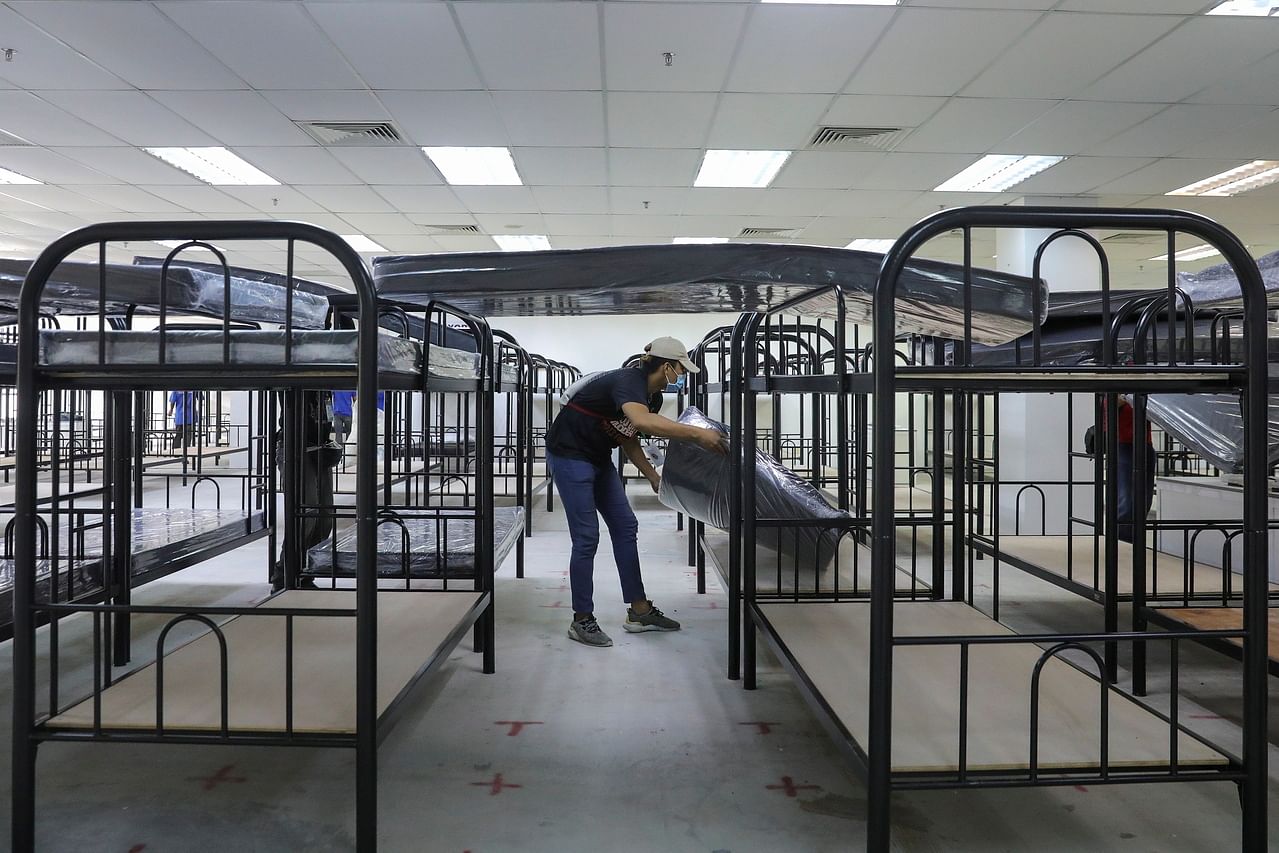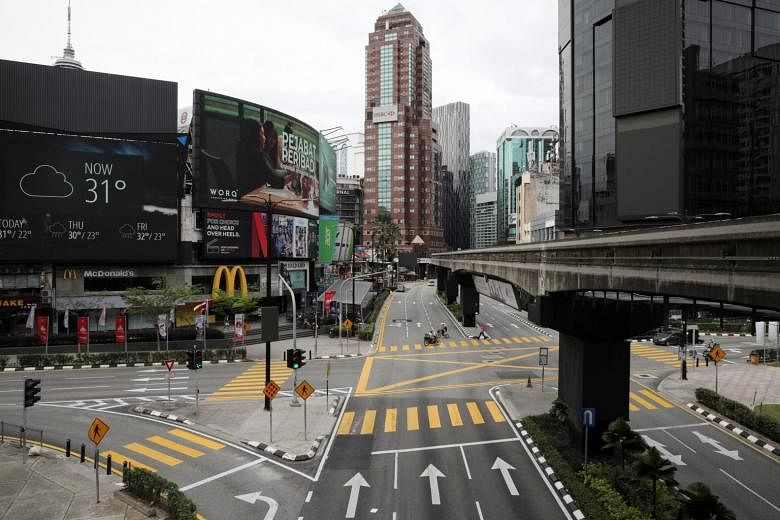PUTRAJAYA (THE STAR/ASIA NEWS NETWORK) - Malaysia's second strict movement curbs may not be extended beyond the Feb 4 end date, said a top Health Ministry.
The Health Ministry's director-general, Tan Sri Noor Hisham Abdullah, said on Monday (Jan 25) that the government is concerned that a prolonged Movement Control Order (MCO) would cause much damage to the country's economy.
After the four-week MCO period, the government will possibly reinstate the more relaxed Conditional MCO.
"We do not want to prolong the MCO. If it is prolonged, our economy could be affected. We need to balance health and economy, life and livelihood.
"So, we implement the MCO until Feb 4 and follow up with the Conditional MCO (CMCO).
"With the combination of the MCO and the Conditional MCO, we can reduce the number of cases to two digits by May. This is our projection," said Dr Noor Hisham at a virtual media session.
The ongoing second MCO, dubbed MCO 2.0, was imposed in most states on Jan 13 and later expanded to 12 of Malaysia's 13 states and the three federal territories, as the third wave of coronavirus infections hit Malaysia. Only Sarawak state remains under the CMCO.
The MCO 2.0 is slated to end after Feb 4, with complaints of job losses and damaged economic sectors.
The government imposed the strict MCO 1.0 in March last year when the second wave of coronavirus infections hit Malaysia, and managed to bring down the infectivity rate.
Dr Noor Hisham said the current R0 (infectivity rate, pronounced R-naught) had gone down to 1.06 from 1.2, indicating that the number of Covid-19 cases might be on the decline.
"Today (Monday), the number of cases is 3,048, which is less than the day before (3,346 cases).
"We hope the cases can stabilise at 3,000. Right now, the R0 has gone down to 1.06 but this is not enough. Tomorrow, it could be less than 1.06; better if it is less than one.
"So we are hoping that in the first two weeks of the MCO, the number of cases is stable and that there is no increase. And then, after Jan 27, we expect to see the number of cases go down," he added.
MCO 2.0 was first imposed from Jan 13 in several states for a period of two weeks, and was initially supposed to end on Jan 26.
It was extended to all states and the federal territories, except Sarawak, and will now last until Feb 4.
Meanwhile, the Health Ministry will be looking to begin its first round of Covid-19 vaccinations at the end of February.
Dr Noor Hisham said the first round of 500,000 vaccine doses would be reserved for front-liners, especially those in healthcare.
"The vaccination period will be from March to May... those who are vaccinated will be given their first dose, and the second dose after 21 days," he said.
After the front-liner phase is complete, he said the second group would be those who are vulnerable, such as the elderly and those with severe diseases.
The third phase is for 17 million citizens who are of working age.
Dr Noor Hisham also said the ministry had identified 130 private hospitals that could treat Covid-19 patients.
"Out of the 130 private hospitals, 95 of them have agreed to help the ministry to treat Covid-19 patients.
"We are still waiting for an answer from the rest. With this, there is an additional capacity of 1,286 hospital beds as well as 65 intensive care beds and 54 ventilators from the private sector," he said.
"This is a great development as we have engaged the private sector in less than a week and we have received a good response."
Malaysia's International Trade and Industry Minister Azmin Ali on Monday said instead of imposing a total lockdown, more stringent health procedures such as targeted testing and tighter distancing protocols could help bring down new cases.
Meanwhile, the Chief Secretary to the Government Mohd Zuki Ali said the government is mobilising its resources to contain the spread of infections.
He said 16 National Service training camps and Bina Negara (National Civics Bureau) camps will be used as temporary lockups to house prison and immigration detainees, to ease crowding in detention centres.
"This is to ensure that there is physical distancing between the detainees to prevent the spreading of Covid-19 among them," Tan Sri Zuki said on Tuesday. Crowded prisons, immigration detention centres and foreign-worker dormitories have witnessed widespread infections in recent months.
Private hospitals have already agreed to allow their facilities to house Covid-19 patients, as government hospitals and specially built treatment centres have run out of spaces to deal with around 40,000 active cases.

Mr Zuki said the capacity of government and public universities' laboratories will be optimised for the purpose of detecting the coronavirus in large scales.
"We will also be mobilising other medical resources such as equipment, PPEs, medicines and also medical personnel such as nurses from private hospitals with certain expertise to be on temporary duty at public hospitals," he said.











